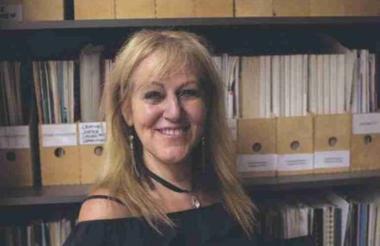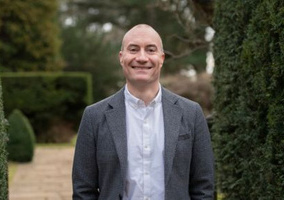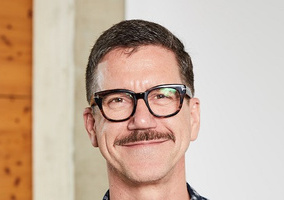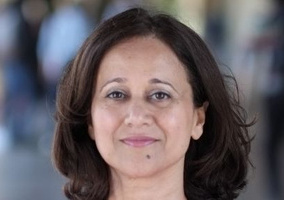Paula Harriott, in her own words, had an “unorthodox entry” into a charity career via the prison reform sector.
In 2004, as a mother of five young children, Harriott was sentenced to eight years in prison for drug offences; her sentence had also not been her first contact with the prison and social services.
Almost 21 years later, Harriott is the chief executive of criminal justice charity Unlock, having spent the last 16 years working in organisations promoting prison and judicial reform and supporting former prisoners.
Having spent half of her eight-year sentence in various prisons and the rest on licence, lived experience lies at the heart of Harriott’s professional life, although she did not initially envisage herself becoming a charity leader.
“I didn’t set out wanting to be a CEO,” she says. “I set out wanting to help. I wanted to change things.”
Unequal access to justice
During her four years in prison, which Harriott describes as “life changing, illuminating and eye opening”, she first began to have inklings of what her post-prison career path may look like.
Initially, she envisaged becoming a counsellor and therapist, specialising in working with people experiencing drug addiction. Accordingly, she undertook distance learning courses in integrative psychotherapy and counselling, and addiction studies.
However, her strongest instincts were that she wanted to help to change the prison system as she had experienced it.
“I think that prison was the first time in my life that I ever realised that there is unequal access to justice, and that there is injustice done in the name of justice,” she says.
“Living in prison for four years, amongst women from diverse backgrounds, all beset by challenges, just as I was myself, unleashed within me a great compassion.
“It taught me about being a change maker, and I brought all of that out of prison with a determination that no other woman should face that too and that I would do my best to ensure that prison changed as an experience.”
When released on license in 2008, Harriott did not initially know which area of prison reform she would eventually work in, but remembered feeling her opportunities were limited because of her criminal record.
“One in four people of working age has a criminal record, and there’s widespread criminalisation and stigmatisation of people with criminal records and a lack of access to employment opportunities. That was especially stark in 2008.”
‘Healthy to not go straight into prison reform work’
Harriott did not immediately dive straight into prison reform work. Instead, she became an administrator at the Scaman Trust, a community development charity in Birmingham.
From there, she was seconded to youth leadership charity Changemakers, where she was promoted twice, eventually becoming regional manager for the Midlands.
Subsequent senior roles at User Voice and Revolving Doors, two organisations focused on prison and judicial reform, brought her back into direct contact with the prison system, this time, as one of the people helping to change it.
“I think it was really healthy for me that I didn’t go straight from prison to working in prison reform. It was a bit of an acclimatisation. I could heal some of the impact of that prison sentence on me and my family.”
Harriott went on to become head of prisoner engagement at the Prison Reform Trust in 2017. After six years there, she began to consider a more senior role.
“I thought, on behalf of all the people with lived experience, of all the women I left in prison, I’m going to go and try to be a CEO, because they’ll be proud of me and I’ll be proud of myself.”
Unlock, which was founded by a group of former prisoners and supports people with criminal records to move on with their lives, seemed like a natural fit for Harriott so she took on the role of CEO in August last year.
‘Very singular depictions of former prisoners’
It has been a busy six months for Harriott in her new role.
She recently led workshops with leaders from charities across Jersey and Guernsey to educate them on how to integrate people with lived experience into their workforces, and how to break down barriers for people with criminal records.
As a “lived experience leader”, Harriott says her expertise is especially valuable in the prison reform sector, which has historically had a far more paternalistic relationship with its beneficiaries.
Nevertheless, Harriott feels that she must “always challenge the perception of the person with lived experience”.
“There are very singular depictions of people going to prison that you constantly have to try to dispel with your energy.”
Harriott reports having been patronised and judged by others whom she has encountered professionally, and feels that often people “don’t want to look to your professional skillset – they want to know about your personal story.”
She describes striking a “balance between the public acknowledgment of my past, and interweaving that with my future”.
However, Harriott adds that the importance of lived experience has developed since she left prison, citing a shift in social attitudes towards people with criminal records like herself.
Although she attributes some of this to some of the work that she has helped to produce at various charities and organisations where she has worked, she says: “I think it very much collided with lots of other theoretical thinking around lived experience. It’s like a perfect storm moment.”
‘There is a vulnerability’
As it celebrates its 25-year anniversary, Unlock plans to introduce a new tagline for the charity – “the long shadow of the criminal record”.
Harriott says this was chosen because, despite the progress that has been made in recent years, a criminal record still follows a person through their work, travel, relationships, healthcare, mortgages and insurance premiums.
Citing social attitude shifts in the last few years, Harriott says she has seen many organisations, including charities, actively employing people with lived experience of disability, racism, homelessness, imprisonment, and so on.
However, these organisations’ support of their employees is more complex in practice than in theory. If, for example, something unfavourable were to emerge about a person with lived experience’s past, Harriott questions whether most organisations would maintain support for their employee.
“I personally have experienced organisations that stood in solidarity with me, absolutely. I respect and honour people that have done that when I have been outed in the press, but there is a vulnerability.”
Ultimately, Harriott says, despite the progress that has been made so far, it seems as though people with lived experience are still largely underrepresented in senior and leadership roles at charities.
“I’m still one of very few lived experience CEOs,” she says.
Green shoots
Like many smaller charities (Unlock has an annual income of just over £400,000, according to its most recently filed accounts), Harriott and her team are finding competition or funding and resources to be fierce.
For a charity focused on helping people with criminal records, many of whom have been in prison, there is also the added challenge that “for some philanthropic trusts, funding us doesn’t have such a ‘feel-good factor’ as saving donkeys”, Harriott says.
Maintaining hope is also challenging, she adds, because “we’re working in places of pain”. Despite the challenges, Harriott seems invigorated by her role. She credits her “immensely supportive” team, many of whom share similar lived experiences, for supporting her as she adjusts.
Harriott says she has a “realistic, not overly optimistic” attitude towards working with the Labour government, although she is pleased to see her former chair from the Prison Reform Trust, James Timpson, as prisons minister.
“I think we just have to keep grounded and keep working with ministers. You can see some green shoots,” she says.
“I feel very confident about the future. Notwithstanding all of the challenges that I’ve outlined, I feel like when you’ve got a really strong team and you have all got vision, passion, drive, and this notion of collective responsibility, we’re going to be okay.”
Related articles












